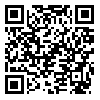Volume 10, Issue 1 (2022 2022)
JRH 2022, 10(1): 10-18 |
Back to browse issues page
Download citation:
BibTeX | RIS | EndNote | Medlars | ProCite | Reference Manager | RefWorks
Send citation to:



BibTeX | RIS | EndNote | Medlars | ProCite | Reference Manager | RefWorks
Send citation to:
Shakurnia A, Sharifinia R. Investigating the Relationship between Critical Thinking and Religious Beliefs of Medical Students at Jundishapur University of Medical Sciences, Ahvaz. JRH 2022; 10 (1) :10-18
URL: http://jrh.mazums.ac.ir/article-1-886-en.html
URL: http://jrh.mazums.ac.ir/article-1-886-en.html
Department of Immunology, School of Medicine, Ahvaz Jundishapur University of Medical Sciences, Ahvaz, Iran
Abstract: (4057 Views)
Background and Purpose: Fostering critical thinking is one of the most important goals of higher education in any country. Considering the controversial issues regarding the role of religious beliefs in human life and reports on the impact of critical thinking on religious beliefs, the present study aimed to investigate the Relationship between critical thinking and religious beliefs in medical students in Ahvaz Jundishapur University of Medical Sciences in 2020.
Materials and Methods: This descriptive-correlational study was performed on 154 (79 female and 75 male) medical students of Ahvaz Jundishapur University of Medical Sciences in 2020 by convenience sampling method. The California Critical Thinking Skills Test (Form B) and Glock and Stark's questionnaires were used for data collection. To investigate the Relationship between critical thinking skill and religiosity, the data were analyzed in SPSS software (version 18) using the Pearson correlation coefficient. A p-value less than 0.05 was considered statistically significant.
Results: Regarding gender, 75 (48.5%) students were male, and 79 (51.5%) cases were female, with a mean age of 23.1±3.2 years. The mean scores of students' critical thinking skills and religious beliefs were obtained at 12.95±4.7 and 76.88± 17 17.4, respectively. The results demonstrated no statistically significant relationship between the mean scores of critical thinking skills and religious beliefs (r = -0.01, P= 0.455).
Conclusion: As evidenced by the results of this study, there was no significant relationship between critical thinking skills and the religiosity of students. That is to say, critical thinking and religious beliefs are not inherently incompatible, and religious beliefs do not create a barrier to students' critical thinking.
Materials and Methods: This descriptive-correlational study was performed on 154 (79 female and 75 male) medical students of Ahvaz Jundishapur University of Medical Sciences in 2020 by convenience sampling method. The California Critical Thinking Skills Test (Form B) and Glock and Stark's questionnaires were used for data collection. To investigate the Relationship between critical thinking skill and religiosity, the data were analyzed in SPSS software (version 18) using the Pearson correlation coefficient. A p-value less than 0.05 was considered statistically significant.
Results: Regarding gender, 75 (48.5%) students were male, and 79 (51.5%) cases were female, with a mean age of 23.1±3.2 years. The mean scores of students' critical thinking skills and religious beliefs were obtained at 12.95±4.7 and 76.88± 17 17.4, respectively. The results demonstrated no statistically significant relationship between the mean scores of critical thinking skills and religious beliefs (r = -0.01, P= 0.455).
Conclusion: As evidenced by the results of this study, there was no significant relationship between critical thinking skills and the religiosity of students. That is to say, critical thinking and religious beliefs are not inherently incompatible, and religious beliefs do not create a barrier to students' critical thinking.
Type of Study: Original Research |
Subject:
آموزش پزشكی
Send email to the article author
| Rights and permissions | |
 |
This work is licensed under a Creative Commons Attribution-NonCommercial 4.0 International License. |






